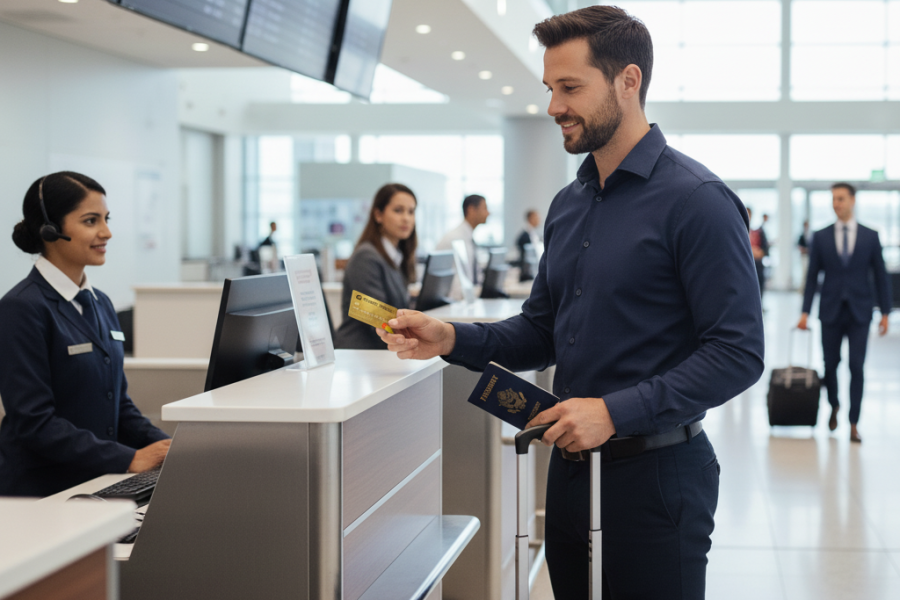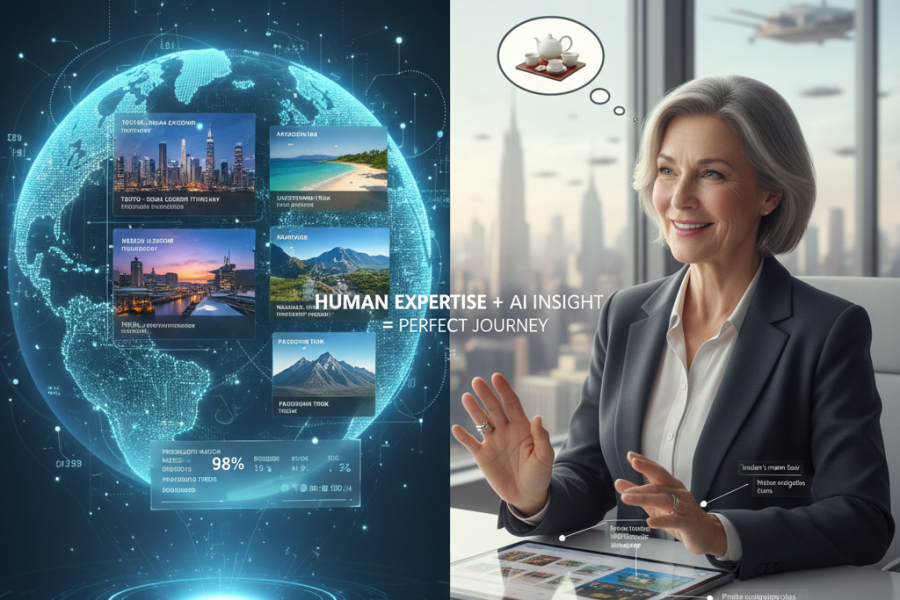The Future of Travel Has Already Begun
Travel is no longer just about picking a destination and booking a flight — it’s about personalization, precision, and planning smarter. In 2026, AI-powered travel planning is transforming how people explore the world.
From building custom itineraries to predicting the best flight prices, artificial intelligence is reshaping every stage of the travel experience. The result? Less stress, more savings, and vacations that feel tailor-made for you.
What Is AI-Powered Travel Planning?
AI-powered travel planning uses artificial intelligence and machine learning to analyze your travel preferences, budget, and interests — and create a customized plan that fits perfectly.
These systems study millions of data points in seconds, from flight prices and hotel ratings to crowd patterns and local weather trends. Instead of spending hours scrolling through reviews, travellers can now let smart tech do the thinking.
Example: Tools like ChatGPT, Google Travel, and Hopper use AI to suggest destinations, predict flight price drops, and even optimize your daily sightseeing routes.
How AI Is Revolutionizing 2026 Vacations
1. Personalized Itineraries
AI can create tailor-made travel itineraries that suit your style — whether you love adventure, culture, or relaxation. It understands your preferences from previous trips and builds recommendations accordingly.
Example: An AI planner might recommend hiking in Georgia, visiting museums in Amsterdam, or relaxing on Bali beaches — all within your budget and time frame.
2. Smarter Flight and Hotel Bookings
Tired of fluctuating ticket prices? AI-powered systems monitor flight and hotel rates 24/7 and alert you when it’s the best time to book. This means you save both time and money.
Many AI travel tools in 2026 even negotiate deals automatically or rebook cheaper options if prices drop.
3. Real-Time Assistance During Trips
AI doesn’t stop working once you reach your destination. It helps with real-time translations, navigation, restaurant recommendations, and even crowd predictions at attractions.
Example: Imagine walking through Tokyo, and your travel app tells you which sushi restaurant nearby has the best reviews and shortest wait time — in your native language.
4. AI Chatbots and Virtual Travel Agents
AI-powered chatbots now act as 24/7 travel assistants. They can help you rebook flights, find lost luggage, or suggest alternative routes in case of delays.
Example: Airlines and agencies are integrating AI to assist travellers instantly — no more waiting on long customer service calls.
5. Predictive Travel Insights
AI analyzes traveller data and global trends to forecast the next big destinations, seasonal patterns, or even local events. This helps travellers pick the right time and place for their vacation.
Example: AI might recommend visiting Georgia in February for snow festivals or Dubai in November for ideal weather and lower prices.
Benefits of Using AI for Travel Planning
- Saves Time: Cuts hours of manual searching and comparing.
- Maximizes Budget: AI finds cheaper and smarter booking combinations.
- Increases Safety: Suggests secure neighbourhoods and safe travel routes.
- Enhances Experience: Offers recommendations that match your exact mood and goals.
- Eco-Friendly Choices: AI promotes sustainable hotels and eco-conscious tours.
The Role of Travel Agencies in the AI Era
You might think AI will replace travel agents — but in reality, it’s doing the opposite. Agencies are using AI tools to serve clients better than ever.
By combining human expertise with machine intelligence, travel planners can now deliver hyper-personalized experiences — faster, smarter, and more efficient than before.
Wrapping up: The Smarter Way to Travel in 2026
In 2026, AI-powered travel planning is redefining how people discover the world. It’s not about replacing human travel agents — it’s about making travel simpler, safer, and more personal than ever.
So the next time you dream of a gateway, let AI do the groundwork — and turn those smart plans into unforgettable memories.
Because in the world of travel, the future isn’t just coming — it’s already here.





Leave a Comment